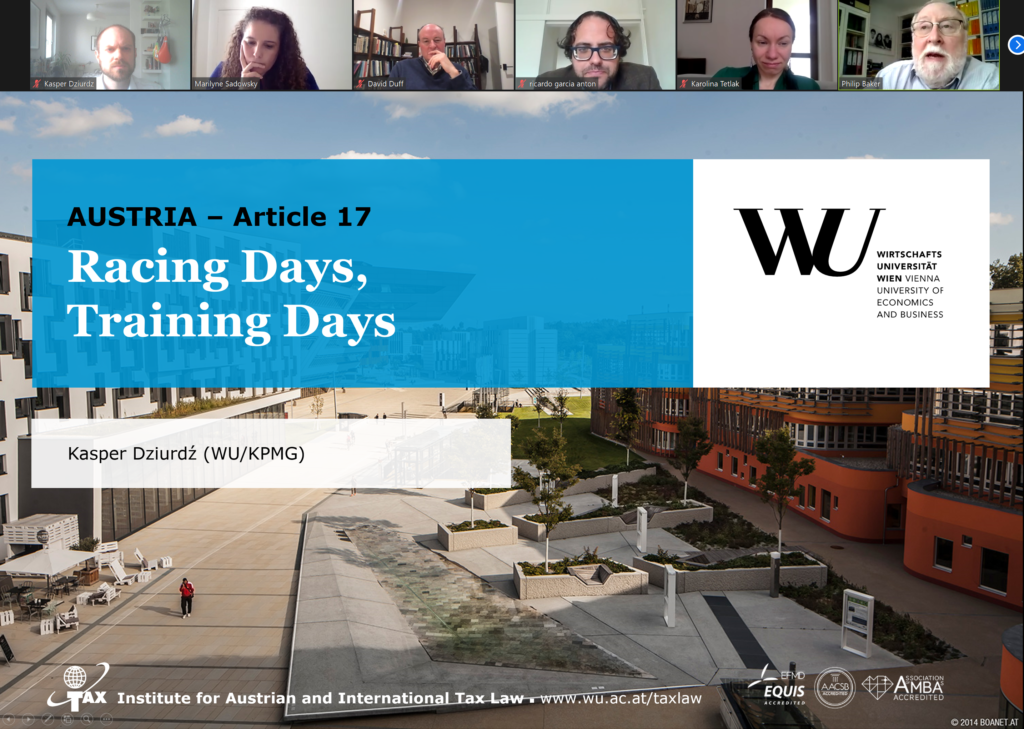Last month, I participated in the Tax Treaty Case Law around the Globe 2020 conference organized by the European Tax College of the Fiscal Institute Tilburg, in joint venture with the Institute for Austrian and International Tax Law. Due to the Corona crisis, it was held online for the first time, and it was a great success.
I presented on a case of the Austrian Supreme Administrative Court about the allocation of income under Article 17 of the OECD Model Tax Convention. It provides that “income derived by a resident of a Contracting State as an entertainer, such as a theatre, motion picture, radio or television artiste, or a musician, or as a sportsperson, from that resident’s personal activities as such exercised in the other Contracting State, may be taxed in that other State.”

Facts of the Case
The taxpayer, a resident of Austria, worked as a professional racing cyclist for a German cycling team in an employment relationship. As remuneration, he received monthly a conto payments, a final payment at the end of the year, and prize money. Under Article 17, the remuneration in respect of the personal activities as such was allocated to the different states of performance.
In the decision Ra 2017/15/0043 of 27 June 2018, the Austrian Supreme Administrative Court dealt with several questions related to the computation of the income under Austrian domestic tax law. As the Supreme Administrative Court overturned the Federal Fiscal Court’s first decision for several reasons, the Federal Fiscal Court rendered a second decision in which it allocated the income on the basis of the racing days. Moreover, the Federal Fiscal Court weighted the racing days based on the points for the winner as determined by the world governing body of cycling, Union Cycliste Internationale (UCI). The tax authority appealed this second decision and argued that the allocation must be based on the racing days alone without consideration of the points for the winner of each race. This led to a new decision of the Supreme Administrative Court.
The Court Decision
In the decision Ra 2019/15/0038 of 30 April 2019, the Austrian Supreme Administrative Court held with regard to the tax authority’s appeal that the relevant provision for the allocation of income is Article 17 (entertainers and sportspersons) and not Article 15 (income from employment) of the relevant tax treaty. Thus, the literature on Article 15 relied on by the tax authority according to which the allocation of income should be based on the agreed working days per year and the actual working days spent abroad is not material in the present case. If the Federal Fiscal Court, in its second decision, allocated the income to the different states of performance as part of an estimation by weighting the racing days based on the points for the winner as determined by the world governing body of cycling, Union Cycliste Internationale (UCI), this does not constitute an incorrect assessment in this case-by-case decision.
Upcoming Book
At the beginning of 2021, the IBFD will publish a conference book summarizing all presented cases. Therein, you will also find my comments about the Austrian case and the allocation of income based on racing and/or training days under Article 17.
